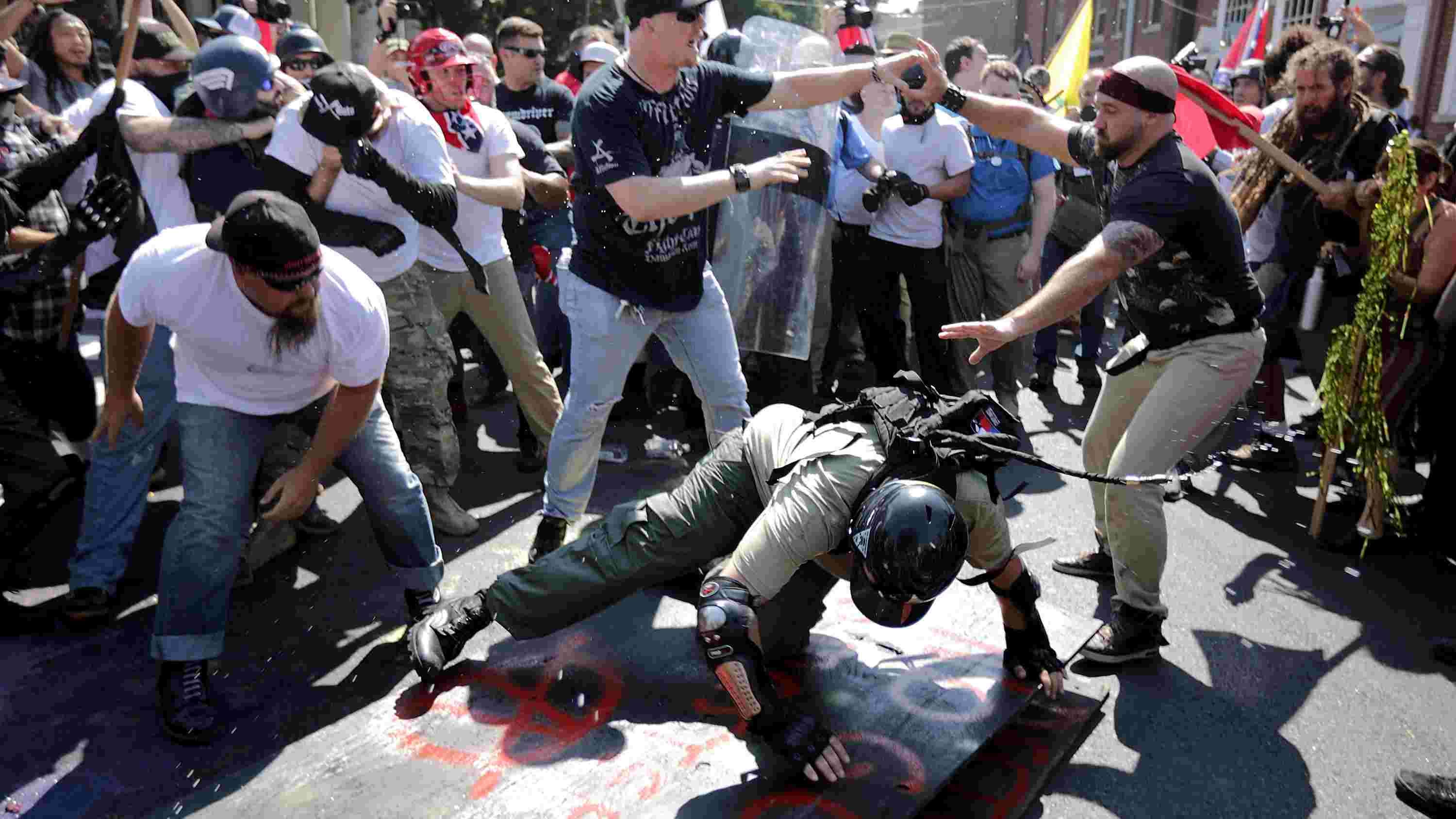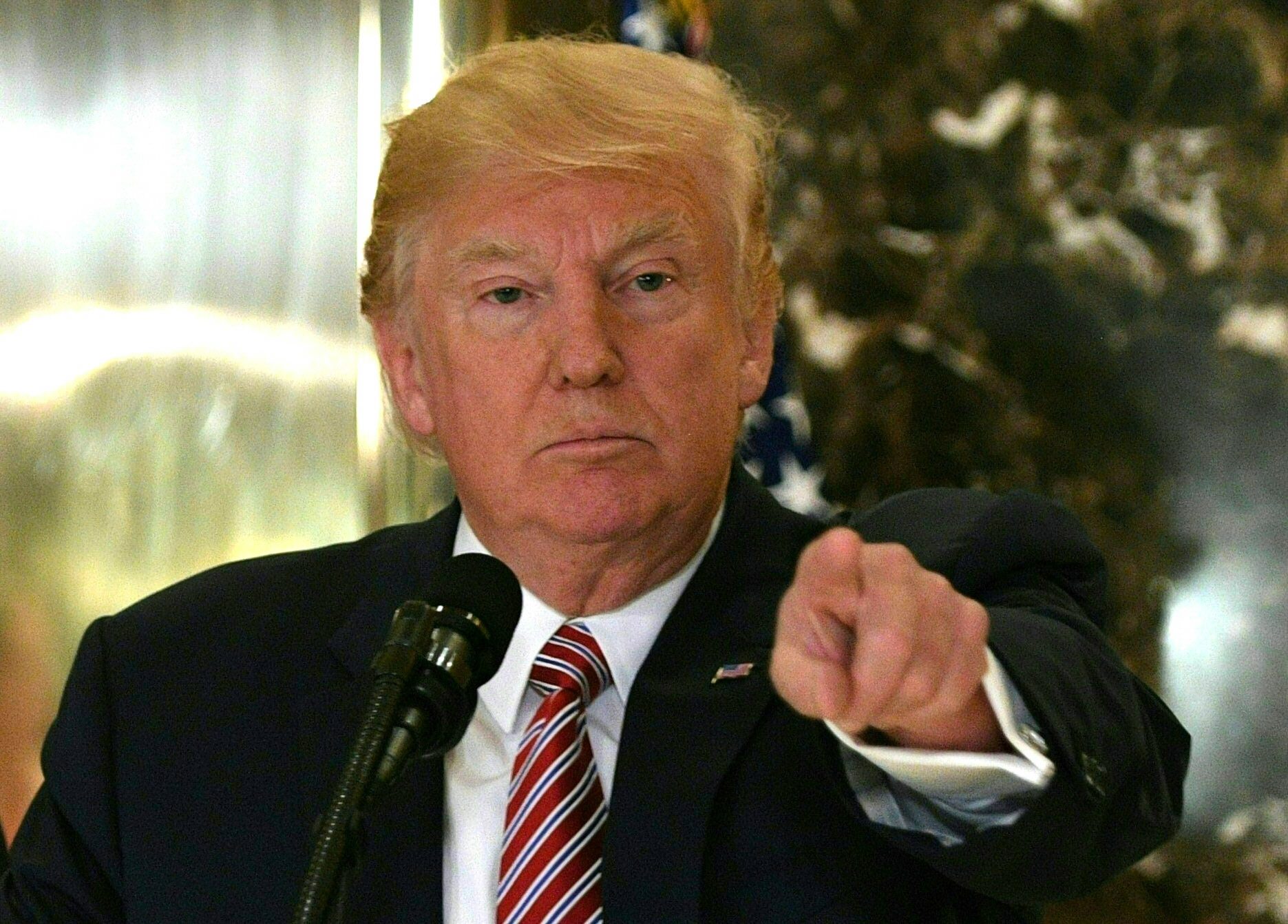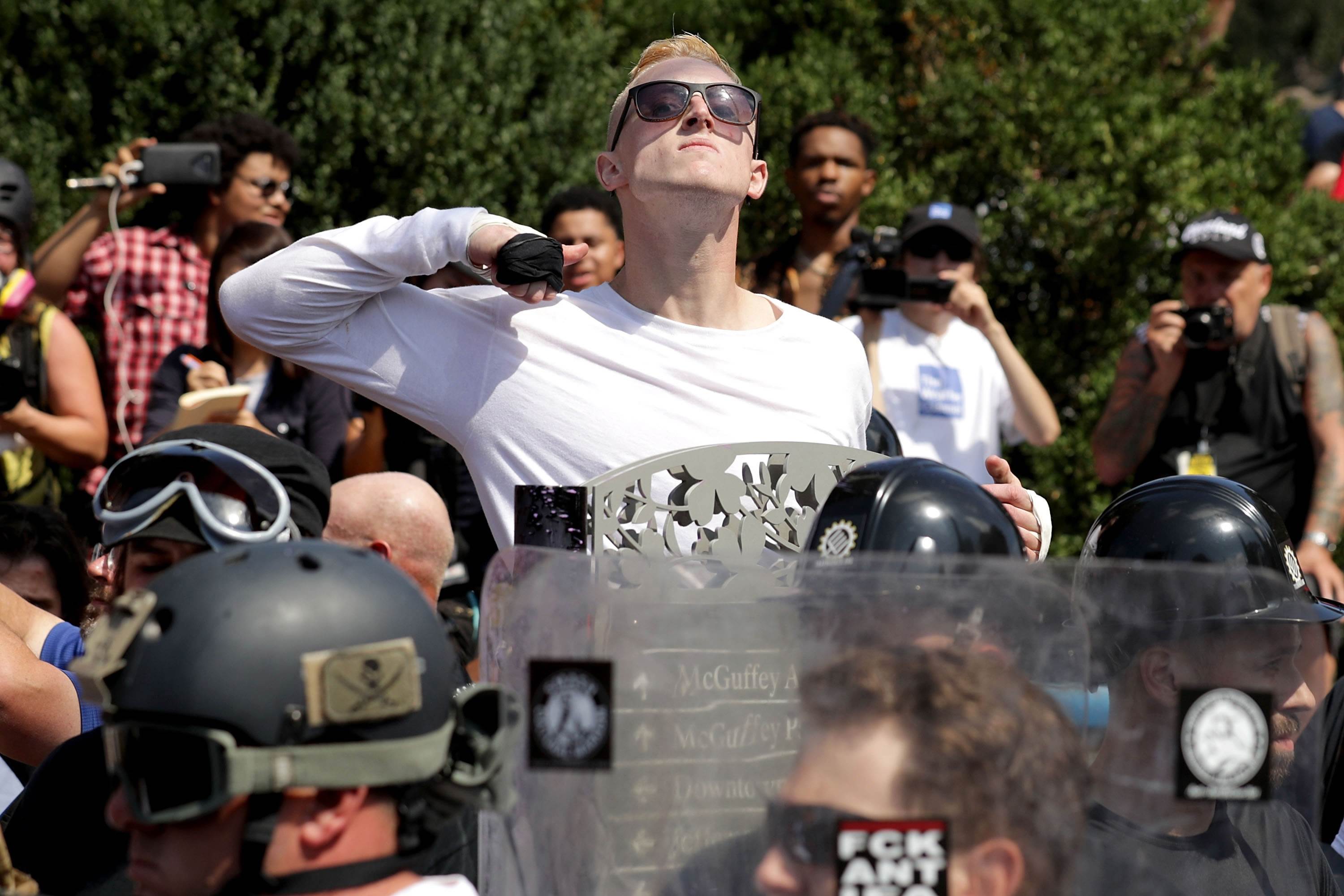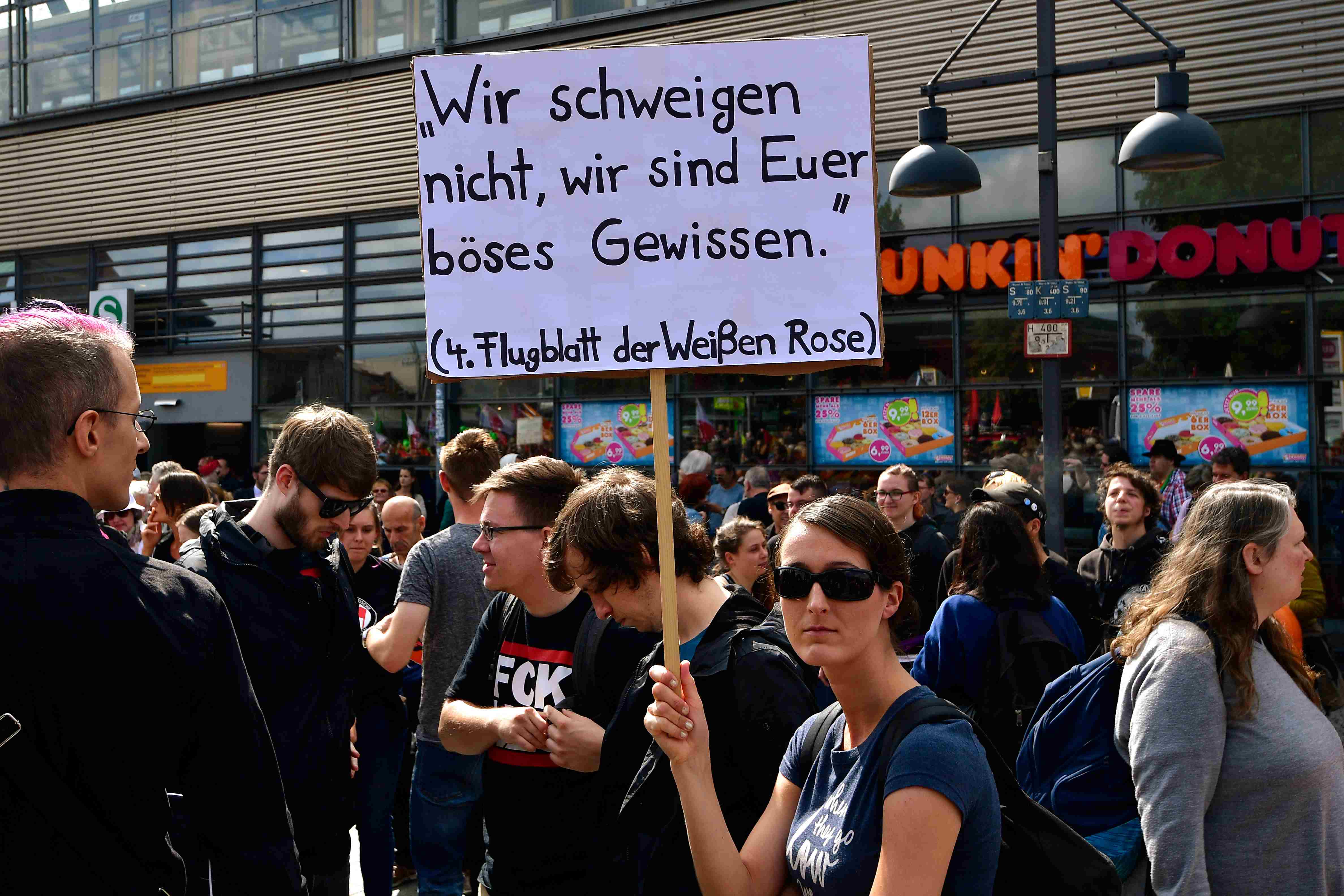
World
18:28, 23-Aug-2017
For Germany, Charlottesville fascism furor revives painful memories
Nadeem Gill

Nearly two weeks have passed since Donald Trump's response to Charlottesville unrest sparked a political backlash against the White House, and the fury doesn’t seem to be fading.
Nowhere is the level of anger higher than in Germany, a country that has rejected its fascist past to such an extent that neo-Nazism it outlawed there. Since one person was killed and several injured in clashes at a white supremacist rally in Charlottesville on August 12, Donald Trump continues to draw widespread condemnations from across the world for his trivialized response to the violence.
It appears he has reopened old wounds in Germany.
The president equivocated in condemning the hate groups and cast blame on “both sides” for the bloodshed, prompting critique that he was fanning racial tensions.

US President Donald Trump speaks to the press about protests in Charlottesville at Trump Tower in New York on August 15, 2017. /AFP Photo
US President Donald Trump speaks to the press about protests in Charlottesville at Trump Tower in New York on August 15, 2017. /AFP Photo
German newspapers have been full of editorials deploring Trump’s "apathy toward Nazis" and "Nazi rhetoric". They have termed him "a racist", "a hate preacher" and a product of "the white elite".
Americans' denial
Die Zeit published an opinion piece on Monday lamenting what it said was many Americans’ denial of the existence of Nazi ideologies in their country.
In a column titled "Fascism, made in America", writer David Motadel said, "Americans tend to believe they are immune to Nazi ideologies. It was never so, as made clear in the Charlottesville episode. With Trump in the White House, white supremacists have become a new danger."
The US is experiencing a wave of increasingly aggressive right-wing extremist and neo-fascist movements, Motadel writes, arguing that fascism is often viewed as a foreign ideology to American society but that it is in fact more deeply rooted in American history than many would want to believe.
'Hate preacher'
Der Spiegel took an even tougher tone on Trump in an editorial last week, saying he is "a racist and a hate preacher".
It's time to stop trivializing the enormous damage he is causing, it said.

A man makes a slashing motion across his throat toward counter-protesters as he marches with other white nationalists during the "Unite the Right" rally in Charlottesville, Virginia on August 11, 2017. /AFP Photo
A man makes a slashing motion across his throat toward counter-protesters as he marches with other white nationalists during the "Unite the Right" rally in Charlottesville, Virginia on August 11, 2017. /AFP Photo
The weekly characterized Trump as a product of the white elite, saying that Donald Trump’s father, Fred, was arrested at a Klu Klux Klan rally in New York 90 years ago .
In another comment piece, Der Spiegel said there has never before been a US president who trivialized the violence and racism of neo-Nazis like Trump.
According to the paper, Trump has now gone too far for many Republicans and the populist leader has become more isolated than ever before – in the world and inside his own party.
Greater danger
The Handelsblatt newspaper explores the reasons as to "why an increasing chorus of shock and criticism is developing in Germany against Trump’s comments on the violence in Charlottesville, Virginia last week."
It said the answer lay in that "when it comes to defying Nazi rhetoric, one of the lessons of history is that speaking out early can help".
The newspaper warns of "apathy toward Nazis" in the US. It quotes a former president of the Central Council of Jews in Germany, Charlotte Knobloch.
“All forms of extremism and terror must be recognized and defeated at an early stage,” Knobloch said.

A demonstrator holds a placard reading "We are not silent, we are your evil conscience" during a demonstration against neo-Nazism on the 30th anniversary of the death of Hitler's substitute Rudolf Hess in Berlin on August 19, 2017. /AFP Photo
A demonstrator holds a placard reading "We are not silent, we are your evil conscience" during a demonstration against neo-Nazism on the 30th anniversary of the death of Hitler's substitute Rudolf Hess in Berlin on August 19, 2017. /AFP Photo
Handelsblatt compared the situation in the US to how Germany combats far-right extremism.
"In Germany, history and the law forbid neo-Nazism. If Angela Merkel had behaved as Donald Trump did in the wake of the Charlottesville disturbances, she could have kissed her re-election campaign goodbye," according to the article.
"Germany has no shortage of neo-Nazis but a rally like the one in Charlottesville would not have been likely here because the public display of swastikas and all other symbols deemed hostile to the law is prohibited and carries a sentence of up to three years in jail," the paper noted.
Self-censorship
As Trump faces isolation, Die Welt praised US tech companies for censoring white supremacists.
IT corporations from Silicon Valley have long defended freedom of expression almost unconditionally, but that has markedly changes since Charlottesville.
US tech giants including Google, Facebook, Twitter, Spotify and Airbnb announced last week they were taking action against comments and behavior deemed racist, in a campaign likely to include pulling down offensive comments from websites and denying service to transgressors.
American writer John Grisham meanwhile told German newspaper Sueddeutsche Zeitung that hate groups had become such an intense focus in the US because the Nazis believe they have "a friend in the White House".

SITEMAP
Copyright © 2018 CGTN. Beijing ICP prepared NO.16065310-3
Copyright © 2018 CGTN. Beijing ICP prepared NO.16065310-3